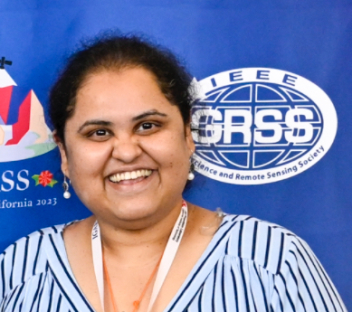Research Staff
Nivedita Nukavarapu
Postdoctoral Research Fellow
Bio
Nivedita Nukavarapu, Ph.D., is a postdoctoral fellow at the Hasso Plattner Institute for Digital Health at Mount Sinai and the Windreich Department of Artificial Intelligence and Human Health in the Icahn School of Medicine at Mount Sinai. She works under the supervision of Ipek Ensari, Ph.D. Before joining Mount Sinai, she held a postdoctoral position at the Department of Population Sciences in the Beckman Research Center at City of Hope. Nivedita earned her Ph.D. from the Indian Institute of Technology Bombay, specializing in Geo-computation and Interdependent Healthcare Resilience. Her educational background includes a Master of Technology in Geographic Information Technology (GIS) and Remote Sensing, as well as a Bachelor of Engineering in Instrumentation and Control with a specialization in Biomedical Instrumentation. Additionally, she holds a postgraduate diploma in Environmental Studies.
Dr. Nukavarapu's ongoing postdoctoral research centers on the integration of machine learning, electronic health records (EHR), mobile health (mHealth), and patient-generated data, specifically within the realm of women's health. Her main goal is to develop AI-based and data-driven models to enhance the understanding of chronic diseases affecting women, empowering patients to manage their conditions more effectively in real time. She primarily focuses on women's reproductive health issues, including conditions like endometriosis and chronic pelvic pain disorders.
In her previous postdoctoral research work, Dr. Nukavarapu focused on geospatial artificial intelligence (GeoAI) and data-driven models to study individual behavioural patterns and their impact on health outcomes. She developed deep learning models that used satellite imagery-derived variables related to climate change to understand their association with population health. Her research interests span various areas, including GeoAI techniques for health data, mobile health with wearable sensors, health data sciences, geodata science, environmental health sciences, and population health.
Bio
Nivedita Nukavarapu, Ph.D., is a postdoctoral fellow at the Hasso Plattner Institute for Digital Health at Mount Sinai and the Windreich Department of Artificial Intelligence and Human Health in the Icahn School of Medicine at Mount Sinai. She works under the supervision of Ipek Ensari, Ph.D. Before joining Mount Sinai, she held a postdoctoral position at the Department of Population Sciences in the Beckman Research Center at City of Hope. Nivedita earned her Ph.D. from the Indian Institute of Technology Bombay, specializing in Geo-computation and Interdependent Healthcare Resilience. Her educational background includes a Master of Technology in Geographic Information Technology (GIS) and Remote Sensing, as well as a Bachelor of Engineering in Instrumentation and Control with a specialization in Biomedical Instrumentation. Additionally, she holds a postgraduate diploma in Environmental Studies.
Dr. Nukavarapu's ongoing postdoctoral research centers on the integration of machine learning, electronic health records (EHR), mobile health (mHealth), and patient-generated data, specifically within the realm of women's health. Her main goal is to develop AI-based and data-driven models to enhance the understanding of chronic diseases affecting women, empowering patients to manage their conditions more effectively in real time. She primarily focuses on women's reproductive health issues, including conditions like endometriosis and chronic pelvic pain disorders.
In her previous postdoctoral research work, Dr. Nukavarapu focused on geospatial artificial intelligence (GeoAI) and data-driven models to study individual behavioural patterns and their impact on health outcomes. She developed deep learning models that used satellite imagery-derived variables related to climate change to understand their association with population health. Her research interests span various areas, including GeoAI techniques for health data, mobile health with wearable sensors, health data sciences, geodata science, environmental health sciences, and population health.



